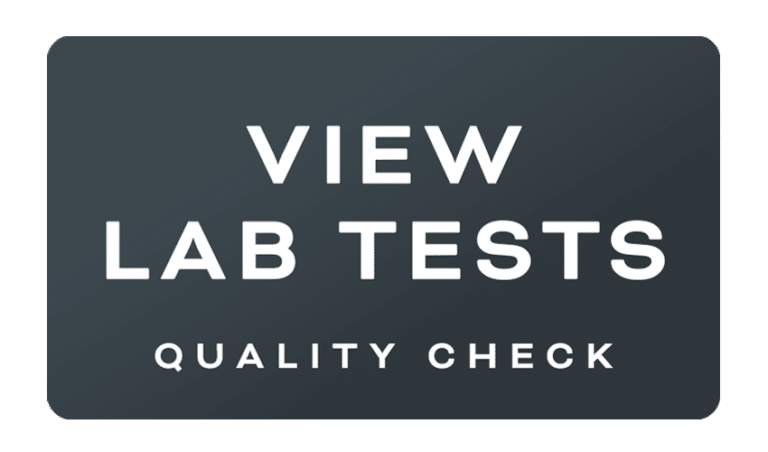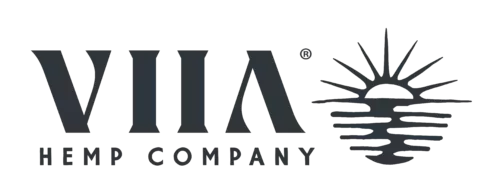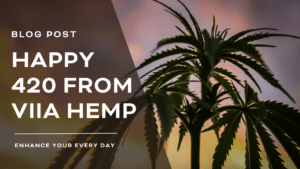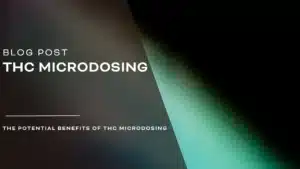Does CBD Show Up on a Drug Test? Understanding CBD Products and Their Impact on Test Results
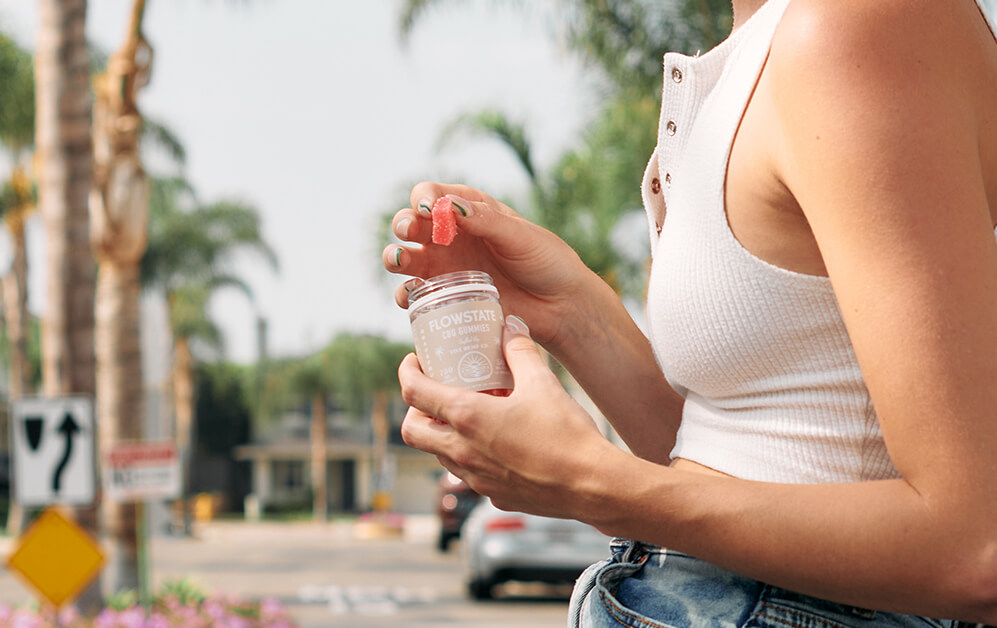
Table of Contents
In 2018, the Farm Bill was passed which federally legalized hemp and its constituents. This has caused cannabis and hemp products to begin to sky rocket on the market. Now, hemp products can be found in stores and online. Research in the cannabis industry is continuously growing, and there are many benefits to CBD that have been discovered. CBD has evolved to be a very popular cannabinoid which has led to the discovery of many more compounds found in the cannabis plant. CBD is a wellness product made from hemp that is becoming incredibly sought after and many people are hoping that taking this product won’t harm their job security. Drug testing Employees are required in various industries, either during their job or pre-employment screening. Many employees are also subjected to random drug testing, which could cause concern when taking different types of wellness products. You may be asking yourself, could this new wellness product affect that? Does CBD show up on a drug test? As cannabis becomes more mainstream, how will drug testing change in the future?
Let’s dive a little deeper into CBD and drug testing.
What is CBD?
CBD, or cannabidiol, is a non-psychoactive chemical found in cannabis plants that has become increasingly popular. CBD has a variety of potential therapeutic benefits that has caught the eyes of many looking for an effective wellness product. Many people have started using this cannabinoid CBD, for many different reasons such as sleep, pain, and stress. While THC is a major cannabinoid that is very well known and popular for its effects, CBD has also become increasingly popular because of its non intoxicating effects. CBD is perfect for those who want to experience the benefits of the hemp plant, but without the psychoactive sensation. While there is much research that still needs to be done on how CBD works in our bodies, what has been discovered so far is truly fascinating.
What does CBD do?
CBD and cannabis products have become increasingly popular for taking a holistic approach to health and wellness. To understand CBD, it’s important to dive into how cannabinoids act and react with our body. Cannabinoids are the chemical compounds found in the cannabis plant. CBD is found in high concentrations in cannabis. When we take CBD, the cannabinoid interacts with our Endocannabinoid System. The Endocannabinoid System is a complex system in our bodies that is responsible for regulating homeostasis, or balance, in the human body.
The two main receptors that are responsible for interacting with cannabinoids are CB1 and CB2 receptors. When we take CBD, the cannabinoid attaches to these receptors to alter and improve their function. The Endocannabinoid System explains why our bodies are so receptive to cannabinoids and their benefits. If you want to learn more about this fascinating system, check out VIIA’s blog on The Endocannabinoid System
You could be wondering, how long does CBD stay in my system? There are many factors that will contribute to the amount of time CBD will remain in your system. The first factor is metabolism. Our metabolism is key to determining how fast things are metabolized, or omitted, from the body. This affects drug tests and whether they will show what substances are in your system. For example, if you have a fast metabolism then it is likely that CBD will be in your system for less time. Another factor that impacts how long CBD will remain in your system is how often you use it. The last factor would be the type of way you take your CBD such as vaping or taking CBD gummies. Vaping CBD and taking CBD gummies have very different ways in which they interact with your system. If you want to find out more about how long CBD will remain in your system, check out our blog – How Long Does CBD Stay In Your System
Drug testing for Cannabis
In 1998 Ronald Regan signed a law called the Drug Free Workplace Act. This Act came to place due to the amount of drug use that was happening in the military. It was an executive order to ban all federal employees from using drugs, on or off duty. Prior to this law, there were very few regulations that employers could use to curb drug use in the workplace. Today, more than half of employers still rely on and use this act.
The most common way Employers drug test will be through urine sample testing. These samples are collected and sent to drug testing companies. Samples are then run through machines that measure trace chemicals in the urine. When it comes to looking for Cannabis traces in urine, the tests are looking for THC metabolites (THC-COOH), which is a byproduct of THC cannabinoids.
Does CBD show up on a drug test? THC is the main chemical found in the marijuana plant that drug tests will detect. Since THC metabolites are found only in THC molecules (this includes delta 9 THC, delta 8 THC, etc), it’s very unlikely that CBD will show up on a drug test. However, it is possible that if you use certain CBD products, there may be THC traces that could show up on a drug test. If you are taking a product that contains Full Spectrum CBD, there will be trace amounts of THC and may result in a positive drug test.
The Difference between CBD and THC
CBD and THC are both chemical compounds found in cannabis known as cannabinoids. CBD (Cannabidiol), is found in high concentrations of cannabis varieties known as Hemp. THC (Tetrahydrocannabinol) is found in high concentrations of cannabis varieties known as marijuana. CBD and THC are extracted through intense extraction methods creating a thick cannabinoid-rich oil. Both CBD and THC have many benefits to the user. These cannabinoids are able to work in human bodies by supplementing our Endocannabinoid System, a complex communication system that is responsible for keeping our body in a state of homeostasis.
The difference between CBD and THC is that their chemical makeup has different effects on our bodies. The primary difference is that THC gives a high feeling to the user, and CBD does not have psychoactive effects. THC is found in high traces of marijuana plants, while CBD is found in high traces of cannabis plants.
There are also legal differences between CBD and THC. CBD as long as it has been extracted from an industrial cannabis plant is federally legal – and these legal CBD products can have up to 0.3% THC in them, and CBD isolate even can have less than 0.3% THC. THC, on the other hand, is yet to be federally legalized. However, there are many states that have legalized the recreational and medical use of Marijuana within certain guidelines. Even though these legalizations have come into play, drug tests still include THC.
Is there a CBD drug test?
There is not a specific CBD drug test that we are aware of. Even if a CBD oil drug test did exist, since CBD is a substance that has no psychoactive effects it is very uncommon that anyone would be screening for CBD. Most drug tests are looking specifically for THC.
Is there THC in CBD Products?
In 2018 the farm bill passed legalizing hemp products, as long as they contain .3% or less Delta 9 THC. This means that CBD products might contain legal levels of THC. Especially if the CBD product is a full-spectrum extract. There are three types of CBD oil – CBD Isolate, Full Spectrum CBD, and Broad Spectrum CBD. CBD isolate is CBD in its purest form, and will not likely show up positive on a drug test. Full spectrum extract that consists of all of the cannabis plant compounds to produce the optimal benefits of the plant. These compounds include cannabinoids, terpenes, and flavonoids. Depending on how many milligrams of Full Spectrum CBD oil you take (upwards of thousands of milligrams), you may end up taking enough THC to test positive drug test. However, this is only in ingestible pure CBD products. Topical CBD products do not enter the bloodstream, so it is highly unlikely you will get enough if any THC from a full spectrum topical product.
The use of Full Spectrum CBD products may produce a popular theory called the entourage effect. This theory states that the many cannabis compounds work better together than when isolated. That is why Full Spectrum CBD products are on the rise. Full Spectrum CBD products that are ingested may result positive for a drug test since they do contain small amounts of THC. However, if you are worried about showing up positive on a drug test but want to experience the entourage effect then you may want to try Broad Spectrum CBD products. Broad Spectrum CBD is a full plant extract and goes through the additional process of having THC removed. Broad Spectrum CBD products are similar to Full Spectrum CBD products in the sense that they both have the many compounds of the hemp plant working together to create a synergistic effect. However, Broad Spectrum CBD products do not contain THC and will not have the psychoactive effect.
Another way THC could end up in CBD products is if a company mislabels its products. The hemp and CBD industry does not have as many regulatory systems in place as recreational marijuana. This means that CBD quality can vary, and many products end up testing for higher than legal levels of THC so you can fail a drug test. In such an unregulated market, it is up to you as a consumer to do your research on the product. The best practice is to read over the company’s Lab analysis.
Does CBD show up on a drug test in hair, blood, or saliva?
So, is CBD detectable? If you are being drug tested with a hair follicle test, a blood test, or saliva swab, CBD still won’t show up, since this is not a CBD Drug test. These tests are still looking for THC metabolites. Each of these tests can show different time frames of substance that may be in your system. For example, In hair follicle tests, a substance like THC will show up even after 90 days of use.
The Future of Cannabis and Drug testing
As attitudes and laws are slowly evolving around cannabis, a lot of things are slowly changing including drug testing. Cannabis laws are becoming less strict and cannabis itself has become more accessible around the United States. Medical professionals even suggest using hemp or marijuana for certain patients. With cannabis becoming more socially and medically available, many states have reconsidered their drug testing laws. Nevada has been one of the first states to halt employers from being able to decline to hire a person for testing positive for THC (except for certain professions). Similarly, New York City also passed a law banning pre-employment Marijuana drug tests (urine drug tests and etc.).
The evolution of the cannabis industry has led to the reconsideration of drug testing laws in many states. Cannabis has become far more widely accessible over the years for social and medical purposes. CBD is a beneficial cannabinoid that has helped many take a natural and holistic approach to health. While there is a lot of progress to be made, this seems like the beginning of the end of Cannabis drug testing. It is still important for Employers to have drug screening processes for illegal drugs and substances, but with cannabis on the brink of full legalization, it should become obsolete.
Takeaway
- Cannabis drug testing is looking specifically for traces of THC metabolites
- CBD will not show up on a drug test
- Traces of THC can be found in CBD products, like full spectrum CBD oil, CBD extracts or broad spectrum CBD and etc.
- There is no CBD oil drug test
- Cannabis drug testing may change in the future
FAQ
Does CBD show up on a drug test?
CBD will not show up on a drug test since drug tests specifically look for THC metabolites. CBD does not contain THC; therefore, a drug test will not show a positive result if it is not CBD without THC. Full Spectrum CBD products do contain a trace amount of THC and may show up positive.
What is the difference between CBD and THC?
The main difference between CBD and THC is that CBD does not have psychoactive effects. THC is the compound in cannabis that causes the “high” feeling. CBD is also legal in all 50 states, whereas THC is only legal in certain states.
What is the future of cannabis and drug testing?
The future of cannabis and drug testing is slowly changing. With the increasing legalization of cannabis, employers are starting to move away from drug tests that screen for THC. In addition, CBD will not show up on a drug test since drug tests are looking specifically for THC metabolites.
Can CBD be detected in hair, blood, or saliva?
No, CBD will not show up on a drug test, whether it be a test with hair, blood, or saliva. Drug tests are looking specifically for THC metabolites. Each of these tests can show different time frames of substance that may be in your system.

